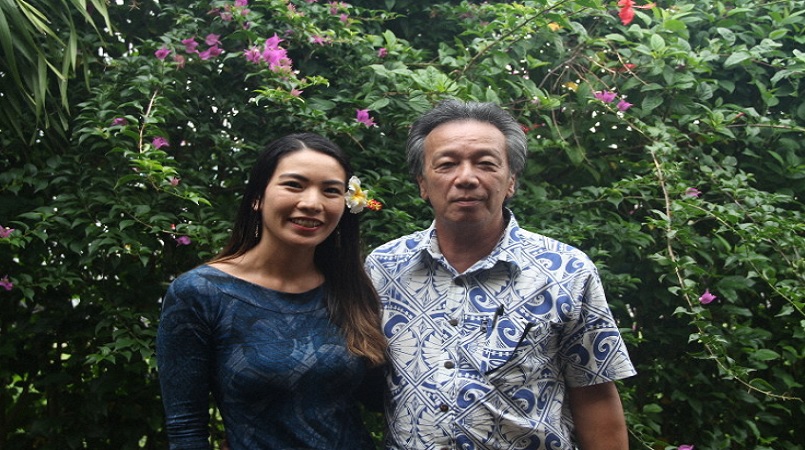
When Erna Takazawa was about 15 years old, growing up in the Pacific island nation of Samoa, her older sister started having vision problems.
"My parents took her to our national hospital and, at the time, the hospital did not have the resources or the capacity to carry out a comprehensive eye exam," the now 30-year-old, half-Japanese, half-Samoan woman said.
From the hospital, the Takazawa family were referred to an American man who was providing unlicensed optometry services to the local community and who charged 700 West Samoan tala ($265) for a simple pair of glasses.
"At the time, the minimum wage was about 1.60 (tala)," Takazawa said.
"So, 1.60 per hour (compared) to 700 tala for a pair of glasses, that's a lot. You're asking a lot from the majority of the population."
The experience was a formative one for Takazawa, who went on to become Samoa's first and only optometrist, providing free eye care to children under 16 and adults who cannot afford it.
"Poor vision affects a person's ability to drive, affects their employability, productivity," Takazawa said, explaining that 80 percent of blindness is preventable.
"If they just have the right advice and timely, early detection of eye disease, they don't have to go blind. Blindness shouldn't happen."
Using a tiered pricing system where lower-priced frames offset the cost of higher ones, Takazawa is able to provide glasses to every Samoan who comes through her door.
After completing her studies in 2012 at the University of Auckland with first class honors, Takazawa was receiving job offers from optometry companies across New Zealand.
She said the decision to come back and practice in her home country was a difficult one -- particularly for her parents, who wanted to see her earning higher wages.
"(But) I remembered the whole reason why I studied optometry in the first place was for my sister, and to help children who otherwise had no hope to get the eye care they needed because they couldn't afford it," she said.
"So I had to dig really deep and say 'No Erna, you studied optometry to help your country.'"
For her efforts and community service, Takazawa was presented with the Queen's Young Leader Award in London by Queen Elizabeth in 2014.
The award, which Takazawa described as "very unexpected," recognizes the work of young people in the 53-member Commonwealth of Nations who are working to improve their local communities.
However, as the only eye-care specialist in a nation of just under 200,000 Takazawa found herself swamped with patients, and since 2016 has been teaching nurses part time at Fiji National University and the Pacific Eye Institute.
By sharing her skills with other health professionals, Takazawa has reduced Samoa's dependency on visiting teams of eye-care specialists, who previously came to treat people en masse three or four times per year.
"Our eye-care team is one of the best in the Pacific. We have a competent team of eye nurses spread all around Samoa that can actually see a patient," she said.
In a country where over 70 percent of all adults are either overweight or obese, according to the World Health Organization, many of the patients Takazawa sees have eye disease stemming from diabetes.
The Fred Hollows Foundation New Zealand, a charity which focuses on restoring eyesight in the Pacific, estimates that cataracts -- which people with diabetes face a significantly greater risk of developing -- account for 56 percent of visual impairment cases in Samoa, followed by diabetic eye disease at 13 percent.
But for Takazawa's father, Misao, the most impressive work the young optometrist has done was detecting a brain tumor in one of her patients through an eye exam alone.
"She could see into the back of the eye, and without any special machinery, she thought it was a tumor, and she sent (the patient) for a CT Scan," Misao, an almost-30-year resident of Samoa said. "I am proud of my daughter."
Takazawa, herself, credits her Japanese heritage for helping her achieve all that she has in her short career.
"When you go around Samoa, you realize we're all pretty relaxed people, we're on 'island time' (but) Japanese are very on-time, very work-focused and driven, and I feel like that really helped me to succeed in university, in my studies, and through my work," she said.
"I am part Japanese and I'm very proud of both cultures, and I think it opened my mind to see the best of both worlds."
Erna Takazawa, left, Samoa's first and only optometrist, poses for a photo with her father Misao, in the Samoan capital of Apia, on July 11, 2019. (Kyodo)
